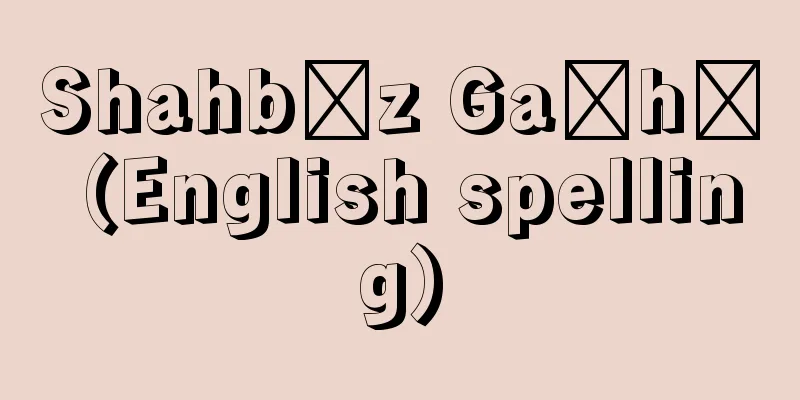Name fortune telling - Seimeihandan

|
A method of judging a person's fortune from their name. Its origins lie in the Chinese Han Dynasty method of divination, which was based on the theory of Yin-Yang and the Five Elements. Influenced by this, in Japan, judgments were made based on handwriting such as a signature or signature, but from the Middle Ages onwards, surname and name stroke divination, which makes use of the theories of I Ching and various rules of Yin-Yang and the Five Elements, began to be used. Even today, people often change their names as a means of improving their fortunes, as there is a deep-rooted belief that a name has a controlling meaning in a person's destiny. There are five standards for judging a person's fortune by name: (1) Good or bad fortune based on the meaning of the characters. (2) Combinations of the number of strokes in the characters. (3) Combinations of odd and even number of strokes in the characters. (4) Combinations of the sounds of the characters. (5) Lucky number of strokes. (1) The meaning of good or bad luck in the literal sense is "the meaning of a name and how it is pronounced." For example, "Yoshida Shigeru" means that auspicious fields will flourish, and one will be highly renowned. "Yoshida Shoin" means that auspicious fields are in the shade of pines, and so suggests that one will not be able to enjoy the blessings of sunlight, and will be destined to give up halfway through one's ambitions. In this way, the meaning and pronunciation form the backbone of a name, and its good or bad qualities are said to govern one's life. (2) The combination of strokes in a character means the "arrangement of heaven and earth." The first character of a family name is "heaven" and the first character of a given name is "earth." For example, if the number of strokes in heaven and earth is the same, then the person is said to have the same number of strokes in heaven and earth, making him a hero of his generation. However, this is not suitable for ordinary people, and is seen as indicating both good and bad fortune. (3) The combination of odd and even strokes in a name is called a "Yin-Yang arrangement." In this case, the odd strokes in a name are considered Yang, and the even strokes are considered Yin, and the combination is judged to be auspicious or bad. This good or bad combination is said to control changes in a person's body, as well as the family fortunes of parents, wives, and children. In this case, all Yin and all Yang are particularly disliked, as they are said to make one susceptible to illness and misfortune. (4) The combination of the sounds of the characters is the "composition of the five elements." A name can be reduced to one of the five elements of wood, fire, earth, metal, and water according to the sounds of the characters, and the combination of these five elements is used to judge good or bad luck. Ka-ki-ku-ke-ko is a fang sound and has the nature of wood; ta-chi-tsu-te-to, na-nin-ne-no, ra-ri-re-ro are lingual sounds and have the nature of fire; a-i-ue-o, ya-i-yu-e-yo, wa-i-ue-wo are throat sounds and have the nature of earth; sa-shi-seso is a dental sound and has the nature of metal; and ha-hi-fu-he-ho, ma-mi-m-me-mo are labial sounds and have the nature of water. Below are examples of judgments based on the 15 combinations. Water = Fire: Courageous and active, but violent. Metal = Fire - Enthusiasm, courage, activity, rigidity. Water = Wood: Gentle and resourceful. Lacking in energy. Metal = Water: You are full of talent, resourcefulness, and energy. You are suspicious. Wood = Fire: Rational, but suspicious and short-tempered. Fire = Earth: Gentle and charitable. Lacking in energy. Earth = Wood: Gentle and compassionate. Earth = Gold: Gentle and not very active. Earth = Water Charming and calm. Can also be mean. Metal = Wood: Honest, chivalrous, and full of energy. Fire = Fire Strong-willed and indomitable. Bad-tempered. Water = Water: Calm on the outside. Inwardly suspicious and jealous. Wood = Wood - Strong-willed and resourceful. Always restless inside. Earth = Earth: Outwardly calm. Suspicious, timid and passive. Gold = Gold Gentle on the outside. Honest and fighting spirit on the inside. (5) The number of strokes means the fortune of the number of strokes in a person’s name. In other words, the fortune of a person’s name is judged by reducing the characters in the name to a number. The fortune of a name is judged based on the above five elements, and an example is shown below.
Now, as for the name "Okuma Shigenobu," the number of strokes indicates that in childhood he is fair-minded and has a strong sense of justice, making enemies easily. From middle age onwards, he will be lucky to be independent and act according to his own will in everything he does, without taking into account the opinions of others. In his later years and overall, he will be lucky to be respected as a leader because he gives generously to others. The combination of the five elements is earth, wood, metal and fire, which indicates gentleness, compassion, courage and rigidity, and is auspicious, and the yin and yang arrangement is also auspicious as it suggests good health. [Yuko Yoshino] Source: Shogakukan Encyclopedia Nipponica About Encyclopedia Nipponica Information | Legend |
|
姓名によってその人の運勢を判断する方法。その起源は、陰陽五行説を踏まえた中国漢代の相字法にある。日本ではこの影響を受けて花押(かおう)、自署などの書体による判断が行われていたが、中世以降、易の理論、陰陽五行の諸種の法則を駆使した姓名字画相が行われるようになった。今日でも開運の手段として、しばしば改名が行われるのは、姓名が人の運命に支配的な意味をもつと根強く信じられているからである。姓名判断の基準としては次の5種があげられる。(1)字義の吉凶。(2)字画数の組合せ。(3)字画数の奇数・偶数の組合せ。(4)字音の組合せ。(5)字画の運数。 (1)字義の吉凶とは「姓名の意義とその読み下(くだ)し」ということである。たとえば「吉田茂」とは吉(よ)い田が繁茂するという意味で、名声が大いにあがる。「吉田松陰」は吉(よ)い田が松の陰にある、というので、日光の恵みに浴することができず、志なかばにして挫折(ざせつ)する運命を暗示。こうして意義と読み下しは姓名の骨子として、その善悪は一生を支配するとされている。 (2)字画数の組合せとは「天地の配置」ということ。姓の頭字を天、名の頭字を地とするが、たとえば、この天地の画数が同一ならば天地同数といって一代の英雄格とする。しかし一般人には不向きで、吉凶両端を示す、というようにみるのである。 (3)字画数の奇数・偶数の組合せとは「陰陽の配置」ということ。これは姓名の画数の奇数を陽、偶数を陰とし、その配合の吉凶をみる。この良否は人の肉体の変化、また両親・妻子など家庭運を支配するとされる。この場合、とくに忌み嫌われるのは全陰・全陽で、病気、災厄にあいやすいとされる。 (4)字音の組合せとは「五気の構成」である。姓名はその字音によって、木火土金水の五気に還元されるが、この五気の組合せによって吉凶を判断する。カキクケコは牙(が)音で木の性、タチツテト・ナニヌネノ・ラリルレロは舌音で火の性、アイウエオ・ヤイユエヨ・ワヰウヱヲは喉(こう)音に属し土の性、サシスセソは歯音に属し金の性、ハヒフヘホ・マミムメモは唇音に属し水の性である。以下はその15の組合せにおける判断例である。 水=火 勇気と活動力があるが、粗暴。 金=火 熱心、勇気、活動、剛直である。 水=木 温厚で才略あり。活動力に欠ける。 金=水 才能、才略、活動力に富む。疑心がある。 木=火 理性に富むが、疑心深く短気。 火=土 温厚で慈善心あり。活動力を欠く。 土=木 温厚で慈愛に富む。 土=金 温厚で活動力少。怜悧(れいり)である。 土=水 愛嬌(あいきょう)があり沈着。意地の悪いところもある。 金=木 正直、義侠(ぎきょう)心、活動力に富む。 火=火 剛気で不屈。気性が粗い。 水=水 外面沈着。内心に疑心、嫉妬(しっと)あり。 木=木 剛気才略。内心つねに穏やかならず。 土=土 外面沈着。疑心気弱で消極的。 金=金 外面温厚。内面は正直、闘争心がある。 (5)字画の運数とは「姓名の字画の数の吉凶」ということ。つまり姓名の文字を数に還元して吉凶を判断する。 以上の5要素をもとに姓名の吉凶をみるのであるが、次にその一例を示す。
さて「大隈重信(おおくましげのぶ)」の姓名であるが、この画数の示すところによれば、少年期は公明正大で正義感が強く、敵をつくりやすい。中年期以後は、何事も自分の意志どおりに行動して他人の意見をいれない独立独歩の運。晩年および全体では、他に施し恵むところから頭領として尊敬を受ける運、ということになる。五気の配合は土木、金火となるが、これは温厚、慈愛、勇気、剛直を示して吉、また陰陽の配置も健康暗示で吉、というように判断される。 [吉野裕子] 出典 小学館 日本大百科全書(ニッポニカ)日本大百科全書(ニッポニカ)について 情報 | 凡例 |
Recommend
anemonefish
...A marine fish of the family Pomacentridae, sub...
Izumi
…In some regions, instead of the entire Shichigos...
Kingston (English spelling)
A city in eastern Ontario, Canada. It is located o...
Angolares
…The oldest inhabitants, the descendants of Afric...
Anonymous Association - Tokumeikumiai
A contract in which one of the parties (anonymous...
Sciadopity
…Compared to the closely related Pinaceae, the co...
Keita Goto
Born: April 18, 1882 in Nagano Died: August 14, 19...
Chlorapatite (chlorine apatite)
A type of phosphorus-containing mineral. It is wid...
Taoism - Dougaku
〘Noun〙① The path that people should follow and lea...
Asia vision (English)
A network for exchanging news via satellite within...
Gymnastics
…It was in the first half of the 19th century tha...
shepherd check
…There are many types and variations, but the mai...
Acanthogorgia japonica (English spelling) Acanthogorgia japonica
… The suborder Axis includes Melithaea flabellife...
Gantillon, S.
...Compared to the new plays (J. Renard, Courtrin...
Minumadaiyosui (Minumadai Irrigation Canal)
It is the largest agricultural waterway in the Ka...









